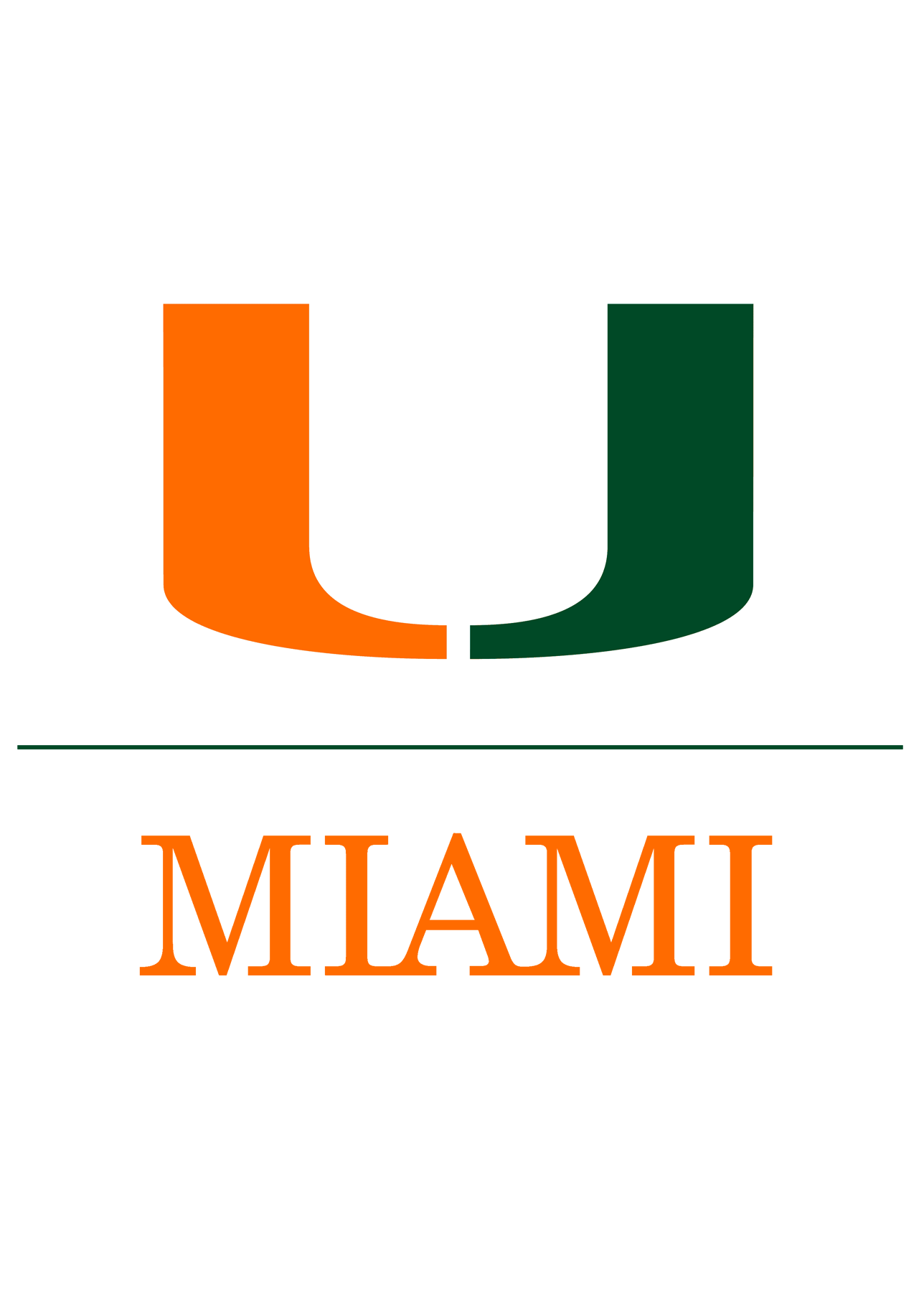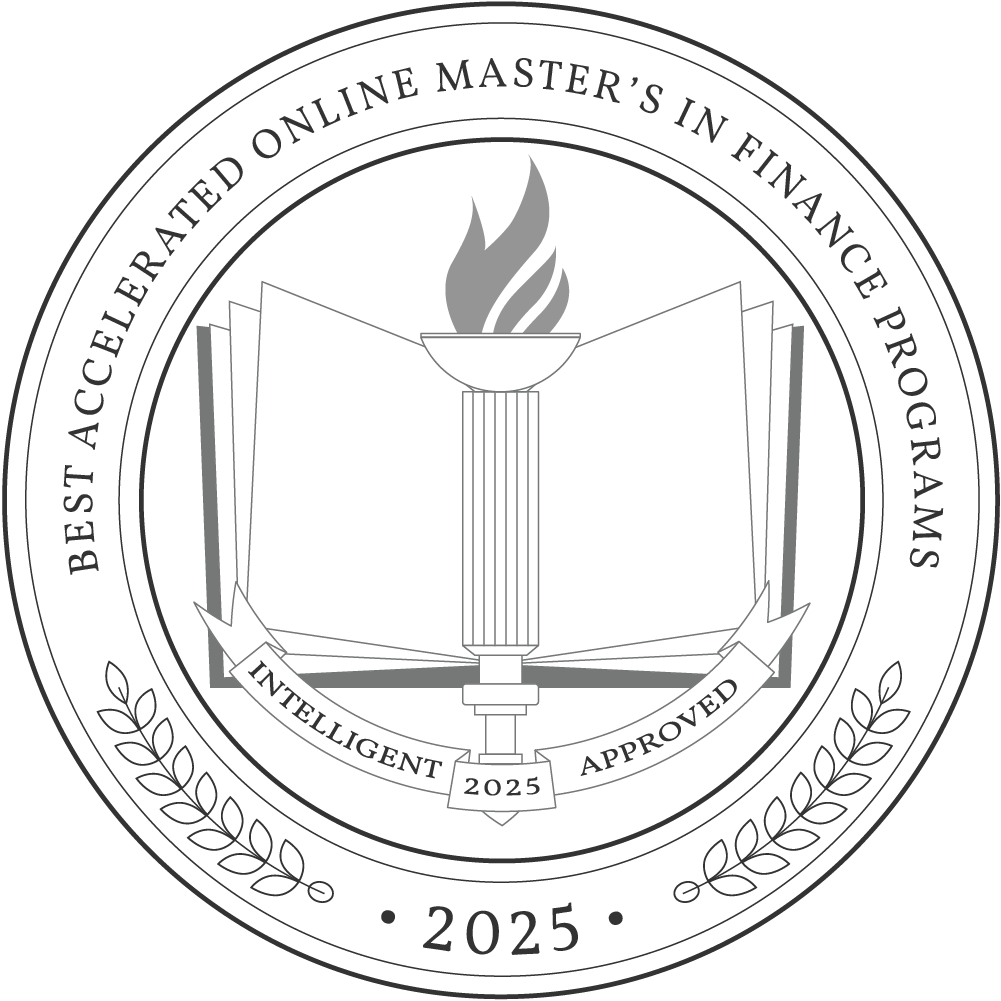Finance is an in-demand field, with growth expected to continue over the next decade. For professionals seeking to level up their education and quickly increase their earning potential, the best accelerated online master’s in finance degree programs are the key to achieving these goals.
Graduates will be eligible for roles like financial analyst, where having a master’s degree can lead to higher pay. In 2023, the top 10% of financial analysts earned more than $175,840. With this advanced degree and adequate work experience, many graduates will also qualify for financial manager positions, with a median salary of $156,100 and the top 10% earning upwards of $239,200.
These programs often take 12 to 18 months, offering a fast track to a lucrative career.
Why Trust Us
The Intelligent.com Higher Education Team is dedicated to providing students with independent, equitable school and program rankings and well-researched resources. Our expert-driven articles cover topics related to online colleges and programs, paying for school, and career outlooks. We use data from the U.S. Department of Education’s College Scorecard, the National Center for Education Statistics, and other reputable educational and professional organizations. Our academic advisory team reviews content and verifies accuracy throughout the year for the most current information. Partnerships do not influence rankings or editorial decisions.
- Analyzed over 2,000 national, accredited, and nonprofit colleges and universities
- 800+ rankings pages are reviewed and updated yearly
- Content is informed by reputable sources, surveys, and interviews with academic advisors and other experts
- Over 100 data points are reviewed for accuracy and quality throughout the year, including sources
How we rank schools
Our list features the best online Finance degree programs at top colleges nationwide. Each school featured is a nonprofit, accredited institution — either public or private — with a high standard of academic quality for post-secondary institutions.
We evaluated each school’s program on tuition costs, admission, retention and graduation rates, faculty, reputation, and the student resources provided for online students. We collected data from trusted sources like the National Center for Education Statistics, individual school and program websites, school admissions counselors, and other data sources. Then, we calculated the Intelligent Score on a scale of 0 to 100 based on the following criterion:
Academic Quality:
- Admission rate versus enrollment rate
- Retention rate of students who return after year one
- Accreditation status (regional and programmatic)
- Nonprofit status, both private and public institutions
Graduation Rate
- Overall graduation rate
- Total number of currently enrolled students, including diversity metrics
- Student-to-faculty ratio
Cost and ROI
- In-state and out-of-state per-credit tuition rates and fees
- Required credits to graduate
- Earning potential after graduation
- Availability of federal student loans, scholarships, and other financial aid options
Student Resources
- Available student services for online-only and hybrid programs
- On-campus amenities like tutoring centers and the number of libraries
Read more about our ranking methodology.
Best 10 Accelerated Online Master’s in Finance Programs
FiltersInstitution Type
Status
- Intelligent Score
- Alphabetically By University Name
- Acceptance Rate
- Enrollment
- In-state Graduate Tuition
- Out-of-state Graduate Tuition
- In-state Undergraduate Tuition
- Out-of-state Undergraduate Tuition

University of Miami
Intelligent Score: 99.31In-state: $52,080
Out-of-state: $52,080
In-state: $45,288
Out-of-state: $45,288
SAT: 1250-1420
ACT: 28-32
$1,847
Online
Association to Advance Collegiate Schools of Business
32

Saint Joseph's University
Intelligent Score: 98.02In-state: $47,740
Out-of-state: $47,740
In-state: $17,802
Out-of-state: $17,802
SAT: 1100-1290
ACT: 23-29
$1,216
Online, On-Campus. Hybrid
Association to Advance Collegiate Schools of Business
30

Indiana University
Intelligent Score: 97.53In-state: $9,815
Out-of-state: $36,194
In-state: $9,786
Out-of-state: $9,786
SAT: 1120-1350
ACT: 24-31
$850
Online
Global Fintech Institute
30

UMass Lowell
Intelligent Score: 95.75In-state: $15,791
Out-of-state: $35,779
In-state: $14,014
Out-of-state: $14,014
SAT: 1200-1390
ACT: 27-32
$655
Online, On-Campus. Hybrid
Association to Advance Collegiate Schools of Business
30

Southern New Hampshire University
Intelligent Score: 95.66In-state: $9,600
Out-of-state: $9,600
In-state: $18,810
Out-of-state: $18,810
SAT: N/A
ACT: N/A
$637
Online
Accreditation Council for Business Schools and Programs
36

University of Scranton
Intelligent Score: 94.76In-state: $46,684
Out-of-state: $46,684
In-state: $11,580
Out-of-state: $11,580
SAT: 1100-1280
ACT: 23-28
$965
Online
Association to Advance Collegiate Schools of Business
30

University of Houston - Clear Lake
Intelligent Score: 93.41In-state: $23,230
Out-of-state: $36,526
In-state: $29,984
Out-of-state: $29,984
SAT: 990-1173
ACT: 18-23
Resident: $497
Non-Resident: $1,021
Online, Hybrid
Association to Advance Collegiate Schools of Business
30

University of Michigan - Dearborn
Intelligent Score: 93.35In-state: $16,520
Out-of-state: $53,669
In-state: $24,344
Out-of-state: $24,344
SAT: 1340-1520
ACT: 31-34
Resident: $531
Non-Resident: $1,007
Online
Association to Advance Collegiate Schools of Business
30

Johnson & Wales University
Intelligent Score: 91.36In-state: $34,376
Out-of-state: $34,376
In-state: $14,148
Out-of-state: $14,148
SAT: N/A
ACT: N/A
$842
Online
New England Commission of Higher Education
30-36

California Lutheran University
Intelligent Score: 90.96In-state: $45,500
Out-of-state: $45,500
In-state: $20,450
Out-of-state: $20,450
SAT: 1070-1240
ACT: 20-27
$350 - $905
Online
Accreditation Council for Business Schools and Programs
36
How to Choose an Accelerated Online Master’s in Finance Program
Choose your area of study
Your master’s in finance will prepare you for a range of careers in the industry, but choosing an area of study can improve your competitiveness for specific roles post-graduation. Specializations allow you to center your education around your career goals.
For example, those aiming to work in financial management with corporations will thrive in corporate finance, while individuals aspiring for roles like portfolio manager or analyst may enjoy specializing in investment management. For those interested in risk management, specializing in this sector will prepare students for careers as risk analysts or managers.
Research schools and programs
With a specialization in mind, you can now conduct more precise research on schools and programs for your degree. To guide your research, consider these questions:
- What are the faculty’s industry experience and qualifications?
- Are there internship or networking opportunities in your specialization?
- What are the program’s graduation and employment rates?
You can find this information on university websites, attending a virtual open house, or contacting an admissions counselor.
Prepare for tests and applications
Once you have a shortlist of programs, it’s time to begin preparing for tests and applications. Some specific requirements may vary by school, but the following list features some of the most standard admission requirements:
- Bachelor’s degree in a related field
- GRE or GMAT scores
- Letters of recommendation
- Personal statement
- Resume or CV
Consider enrolling in a test prep program to boost your scores when preparing for standardized tests. There’s a wide array of these for both the GRE and GMAT, and they can provide support to improve your performance and ultimately make you a more competitive applicant.
Select your program
The arrival of acceptance letters is always an exciting time, but it can quickly become overwhelming if you receive more than one. Take some time to revisit your initial research criteria, focusing on the elements most important to you, such as specialization availability, the faculty you’ll learn from, and support services for online learners. Additionally, the total cost of attendance must be assessed and compared with any financial aid offered to make an informed decision. This will help ensure you choose a program that meets your academic and professional goals and fits your financial situation.
Determine how you’ll pay for your degree
Paying for your degree can seem intimidating, but many financial aid resources are available to help. Start by submitting the FAFSA to access federal aid options. Then, apply for scholarships and assistantships, which can significantly reduce costs. If you’re already employed in a related field, check if your employer offers tuition reimbursement programs.
While federal loans are widely available and can bridge financial gaps, use them sparingly to avoid excessive debt.
What Can You Expect From an Accelerated Online Master’s in Finance Program?
An accelerated online master’s in finance degree program offers a rigorous and efficient way for students to advance their careers in finance. Often completed in 12 to 18 months, these programs are designed for individuals who seek a thorough and fast-tracked education. Participants can expect to immerse themselves in financial analysis, investment strategies, corporate finance, risk management, and financial markets. The most innovative curriculums will include practical application through case studies and real-world financial problem-solving, guaranteeing that graduates are well-prepared for the finance industry.
Graduation requirements usually include a capstone project instead of a thesis. This project typically involves applying the knowledge gained throughout the program to a real-world financial issue, illustrating the student’s skill set.
Students interested in analyzing financial information should also consider online master’s in accounting programs, as this may be a better fit for your personal interests and career goals.
Potential courses you’ll take in an accelerated online master’s in finance program
- Financial Management: In this fundamental course, students explore the strategies and techniques used in high-level financial decision-making within corporations. They learn about capital budgeting, economic forecasting, and value creation, equipping them to manage and optimize a firm’s financial performance.
- Investment Analysis Management: A cornerstone in most curriculums, this course covers the principles and practices of investment analysis, including asset valuation, portfolio theories, and risk management. Participants gain skills in evaluating securities and constructing diversified portfolios to maximize returns while minimizing risk.
- Financial Modeling: Typically considered an upper-level course, this class provides students with the skills to create and utilize complex financial models for forecasting and decision-making purposes. Students learn to build models that simulate practical financial scenarios, enabling them to analyze business performance and project future economic outcomes.
What Can I Do With a Master’s in Finance Degree?
Career outlook
- Financial Analyst — Graduates in the role analyze financial data and trends to provide insights and recommendations for business decisions.
- Median annual salary: $99,010
- Projected employment growth (through 2032): 8%
- New jobs projected: 27,400
- Financial Risk Specialist — These professionals identify, assess, and mitigate financial risks within an organization to protect its assets and ensure stability.
- Median annual salary: $106,090
- Projected employment growth (through 2032): 8%
- New jobs projected: 27,400
- Financial Manager — With ample work experience, graduates are eligible for this role. Financial managers oversee a company’s financial activities — including budgeting, forecasting, and financial planning.
- Median annual salary: $156,100
- Projected employment growth (through 2032): 16%
- New jobs projected: 69,600
Accelerated Online Master’s in Finance Program Frequently Asked Questions
How do accelerated degree programs work?
Accelerated online master’s in finance programs condense the curriculum of traditional programs into a shorter time frame, typically 12 to 18 months, by offering intensive, focused courses. They maintain the same quality of education and standards through coursework and practical application. To explore the advantages and drawbacks of these programs and determine if they suit your goals, visit our page, which delves into this further.
How long does it take to earn an accelerated online master's in finance degree?
These degrees take 12 to 18 months to complete, compared to the two to three years for traditional programs. Even so, completion timelines can vary based on the total credit requirements of each program, so it’s important to double-check these details. The number of required credits can influence how quickly you can graduate, even in an accelerated format.
How much does an accelerated online master's in finance degree cost?
According to the most recent National Center for Education Statistics data, graduate school tuition averages $20,513 per year. Beyond tuition, you’ll also want to budget for additional expenses — like technology fees, course materials, and textbooks — as these costs can add up over time.


